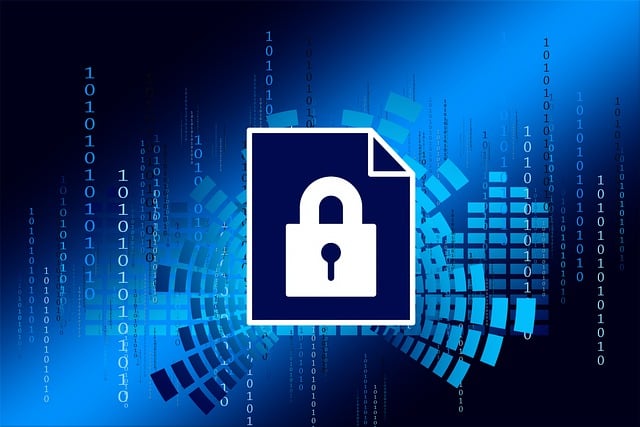One of the biggest industries in the world is the construction business. Ironically, it is also one of the least digitized industries. According to a survey, only 23% of construction organizations use project management software, business strategies, and ecosystems. Construction companies have realized the need to change with the digital times to stay competitive in the coming years and decades.
Even though digitization is important, many construction companies struggle to make the change and run out of steam quickly. The roadblocks to digitalization are disheartening. Every construction project is different, has many independent suppliers and subcontractors and can change at any time.
Stakeholders don’t have much reason to use new methods, and companies that use new technologies have a hard time finding tools they can use over and over, including simple tasks like to-do lists.
How can construction businesses make a successful digital transformation, especially with security with these problems in mind? The key is to keep your mind on the benefits and be aware of the problems you might face along the way. Learning from digital transformation projects that worked well can help you carry out your own digital projects in construction.
The importance of scope management tools:
You wouldn’t embark on a long road journey without a map, would you? The project scope statement functions as a road map that guides you from beginning to end. Without this declaration, team members will be unsure about what to do and when to do it. In addition, you are more inclined to miss timelines, make mistakes, and go over budget.
The scope statement is also included in your essential documents, demonstrating that all parties were briefed and authorized on the project before any construction started. Such a declaration is required to safeguard your interests in the event of a disagreement with the customer, contractors, subcontractors, or employees.
Project Scope Management is a collection of operations that must be accomplished in order to produce a “project,” which may be a product, service, or outcome with certain characteristics or functions. Scope Management is concerned with “how we get there,” or, more precisely, “what actions do we undertake to get there.”
These stages are specified and mapped so that program managers and supervisors may determine how much work is required and where the team’s efforts should be concentrated in order to accomplish the project. Having the right tool that properly allows you to undertake scope management is crucial in any construction process.
The power of the cloud:
Many in the construction business are looking to the cloud as a means of protecting their operations from cybercriminals. When storing information on the cloud, backups are done routinely and up-to-date security measures and construction management can be provided by service providers.The cloud provides an additional safeguard for critical data.
One of the world’s leading digital security firms claims that servers are typically kept in locked warehouses that employees rarely if ever visit. Everything saved to these servers is encrypted, or scrambled, making it significantly more difficult for hackers to access.
Having a standardised procedure for collecting and exchanging data and an understanding of the many manifestations of cyberattacks are essential for preventing data loss. Here are five immediate measures your construction firm may take to better protect client information:
- To keep sensitive company information safe, encrypt it.
The ability to remain in continual contact is one of the most significant advancements that technology has brought to the construction industry. Increased efficiency and productivity come at the cost of increased security risks while using portable electronic devices like tablets, laptops, and smartphones. Encrypting their data is a great way to make sure these gadgets are as safe as possible. Ensure that the document sharing platform you use doesn’t allow for easy access and is password-protected.
- Put unused information into storage:
Your servers are likely storing stale information that hasn’t been touched in a long time, yet even ancient data might be vulnerable to attacks. If you have a tiered system for archiving data, you can save older data, such as financial and employee records, on a different, more secure system, freeing up space on your core servers.
- Permissions and Policies for Data Access:
You can reduce potential damage by dividing up data access into different degrees of permission. Best practices also include a method for temporarily halting access whenever it’s necessary and improvements to disaster recovery.
How do you respond when an employee leaves the company or a coworker falls victim to a phishing scam? So that they no longer have access to company information, you must have mechanisms in place that promptly cut off access and secure your data.
- Have an anti-virus programme
Your construction data needs firewalls and virus protection if it doesn’t have any already. The next step is to ensure that they are constantly updated. There are a variety of security systems that can warn you of infiltration attempts and malicious software. Don’t dismiss these warnings or you risk undermining the usefulness of these systems.
- Maintain Frequent Data Backups
Regular offsite or cloud storage with encryption is strongly recommended for your data backups. Backing up data is an absolute must for any company that deals with any kind of information. It is preferable to have done something, even if it’s just moving important files to an external hard drive.
Losses due to hacking or other forms of cybercrime may be disastrous to any business. Half of all small firms that fall prey to a security hack will close their doors within a year, and that number includes building enterprises. This is why being practical and assertive is crucial.
To conclude:
The importance of data security cannot be overstated, especially for businesses that handle large capital projects.
Theft can occur at any time with sensitive information such as payroll records, bank statements, and construction plans. You too may fall prey to malicious software like ransomware.
Hostage taking occurs when hackers refuse to give up access to your data until they are paid. It’s a scary world – one in which you should never leave your data unprotected. Having a good cloud-based management software can go a long way in helping multiple stakeholders across the world work together and create one seamless software solution.
Make sure you have a strong data protection plan, and you’ll be able to future-proof your business and data for the next decade ahead.




